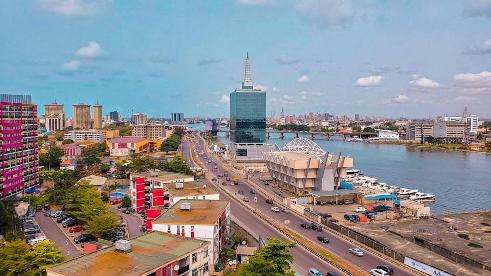
LAGOS JULY 3RD (NEWSRANGERS)-Many young Nigerians are adopting bitcoin amid the crypto ban put in place by the Nigerian Central Bank. In fact, since the start of 2021, peer-to-peer bitcoin trading has grown to $204 million, the largest amount in Africa.
Data collated from Usefultulips, a Bitcoin analytic provider, shows Nigeria dwarfs the rest of Africa combined on the use of bitcoin for peer-to-peer transactions. For instance, in the last 180 days, its closest rival in P2P BTC transactions, Kenya, totaled $84.3 million. In Ghana, the total was $59.8 million.
Olumide Adesina is a Nigeria-based certified investment trader with more than a decade experience. He will appear at CoinDesk’s Crypto State: Nigeria virtual event on July 8.
A significant number of young, internet-savvy Nigerians are using crypto to move capital, amid a period of great technological and sociological change in Africa’s largest country. A declining local currency and antagonistic government have made Nigeria into a proving ground for Bitcoin’s big ideals.
Chinedu Obidiegwu, business development lead in Nigeria for Luno, a P2P crypto platform, spoke on the growing use of bitcoin amid its price volatility and the crypto ban put in place by Nigeria’s central bank:
“The restriction of banks by the Nigerian regulators in February 2021, came as a considerable shock to the cryptocurrency ecosystem. Notwithstanding, Nigerians have rather increased their use and deepened knowledge as seen in the numbers across platforms offering alternative funding options even through a recent market switch from bullish to bearish,” he said.
Data collated from Binance showed growth in the company’s P2P users across Africa from January to April surged by a whopping 2,228.21%. Nigeria, of course, played a major role. Other top crypto brands like Paxful, FTX and Crypto.com are also entering the fold. P2P transactions have skyrocketed as the central bank has banned the country’s banks from handling crypto transactions.
“We’ve experienced a 23% increase in our trading volumes since the new
policy,” Nena Nwachukwu, Nigeria’s regional manager for Paxful, said.
Bitcoin’s ascent is rooted in a sharp fall in remittances through traditional channels during the pandemic. The World Bank said remittances to Nigeria declined by 27.7% in 2020.
The Nigerian local currency hasn’t helped everyday people either. Rising inflation (17.93% in May) has eroded the purchasing power of many Nigerians who seek alternatives like bitcoin to preserve their wealth. The country has one of the highest youth poverty rates in the world.
These growing economic challenges help explain why the crypto industry is growing despite the government’s efforts to stunt bitcoin adoption. Despite its benefits, bitcoin is not a magic pill.
Luno’s Obidiegwu spoke to the premium costs and high-risk exposure to fraud many young Nigerians face when buying the crypto asset:
“The unfortunate effect, however, is that many Nigerians have had to depend on the less secure and transparent OTC (over the counter) channels, exposing many to a higher risk of being defrauded and reducing visibility to the financial activity which should be a bigger concern compared to the reasons given for the ban.”
Still, Enakirerhi Ejovwoke, the founder of Abokie.com and thebittle.com, spoke to the opportunities still in play, despite a government ban:
“I see the ban was received more as an opportunity rather than a hindrance to crypto advancement in Nigeria, and I believe that other countries facing similar situations now or in the future can use Nigeria as a model of hope.”
Coin Desk










